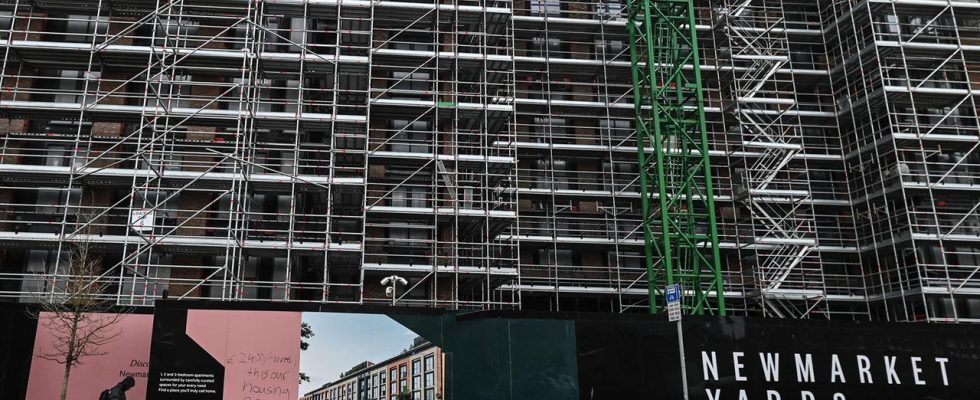Ireland is actually doing well; the economy has been on the upswing for years. At the same time, fewer and fewer people are finding affordable housing. The middle class is particularly affected.
Andrew and Chrissy now live with their two children in Cabra, a family-friendly and quiet district in the north of the Irish capital Dublin. Both are in their early 30s, have completed a good education and have always had full-time jobs in recent years: Andrew as a freight coordinator and Chrissy as a marketing and community manager. The young couple lived in rent for a long time until they followed their desire to own their own house in 2017.
The two quickly realized that, despite their double income, it would be difficult to save enough equity for a home loan. In order to be able to save the necessary money, Andrew and Chrissy gave up their rental apartment and moved in with Chrissy’s uncle to save on rent.
“Millennials” are hit the hardest
Andrew and Chrissy are not isolated cases. More and more people, especially young Irish people, are suffering from the rapidly rising rents. Last year alone, new rents in Ireland rose by 8.9 percent. In the capital Dublin, the average new rent is now over 2,100 euros. Given these figures, around two thirds of all Irish people under 30 cannot afford to rent an apartment.
Students are particularly hard hit. University College Cork graduate Sami Chakhouk had 20 to 30 viewings at the start of the semester before he finally found something. “I only found a room in a shared apartment at the very last minute, on the day the semester started. It was not unusual for me to show up to view it, and 40 to 50 other students were already there and the room was given away in a few hours.”
It’s not just students who are struggling; Young professionals also often have to find alternative paths. Many still live with their parents, stay with friends or try “couch surfing”. Some even risk homelessness. When asked, Wayne Stanley, Executive Director of Simon Communities, a foundation against homelessness, confirmed: “We are experiencing a worrying phenomenon that more and more well-paid workers are also seeking support. It is still a small number, but it is growing.”
The long shadow of the financial crisis
Experts attribute the ever-increasing rents and property prices to the country’s strong population growth in recent years. A high birth rate compared to the EU and a large influx of workers and students have led to very strong demand for housing. Cian Carolan, managing director of lender DNG Financial Services, says: “The problem is the severe shortage of sufficient housing. This shortage is also due to the 2007/2008 financial crisis.”
Similar to the United Kingdom, Ireland is a country of property owners. At 70 percent, the ownership rate is significantly higher than the 47 percent in Germany. Purchasing your own property at a young age is deeply rooted in culture and is an essential part of retirement planning. This is one of the reasons why Ireland experienced a real estate boom until 2008, similar to Spain.
With the collapse of the financial and real estate markets during the 2007/2008 financial crisis, Ireland was hit particularly hard. Carolan describes that “banks and lenders, but also private individuals, simply did not have the money to build apartments on a large scale. In addition, there was great reluctance in politics.” There was a standstill in housing construction for several years, from which the country has not yet recovered.
A difficult recovery
After a phase of stagnation, new construction has only increased again in the last few years. As the economy grows, the money is there and it is easier for construction companies to access the funds. Politicians, who for decades left housing construction to the private sector, also increased their efforts and set housing goals. 33,000 new homes are expected to be built annually between 2021 and 2030.
Wayne Stanley welcomes the government’s efforts, but believes the targets are not sufficiently ambitious. Stanley calls on politicians to do more, especially in social and non-profit housing. “Only a sufficient supply of safe and, above all, affordable housing can combat the housing crisis in the medium term.”
Andrew and Chrissy had to live with Chrissy’s uncle for over a year until they were finally able to realize their dream of owning their own house. “And we were very lucky. We know people who have been looking for several years and can’t find anything. Some have even given up.” To help young people like them find and buy a home, they founded the initiative and Facebook group “First Time Buyers Ireland”. The group now has over 15,000 members and supports house hunters on their way to their first property.

